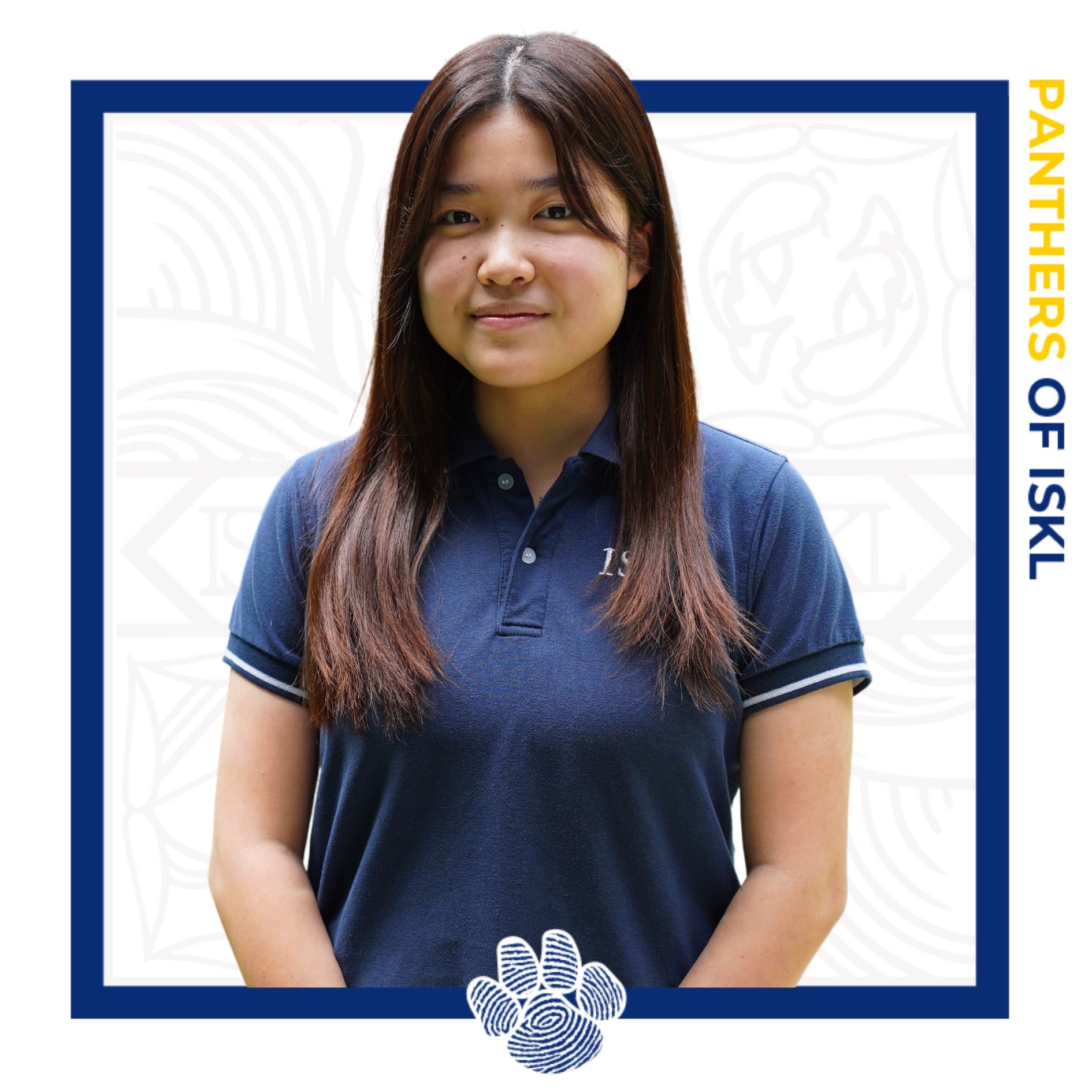– The Aspiring Medical Interpreter
“Even though students can’t speak English well or don’t know the correct medical terms to explain their symptoms or understand what the doctor says, they can understand and interpret these themselves by using these posters I created.”
Having experienced physical pain herself and requiring the services of a Japanese medical translator, English as an Additional Language (EAL) and Pursuits student Mei Y. (’24) saw the need to create medical translation posters to be placed in the nurses’ clinics at ISKL.
After meetings with the ISKL nurses and EAL teachers, Mei became well-versed in pain charts and was able to create Japanese, Korean, and Chinese medical translation posters so that other EAL students could feel comfortable in expressing their needs in their mother tongue.
Here is Mei’s story:
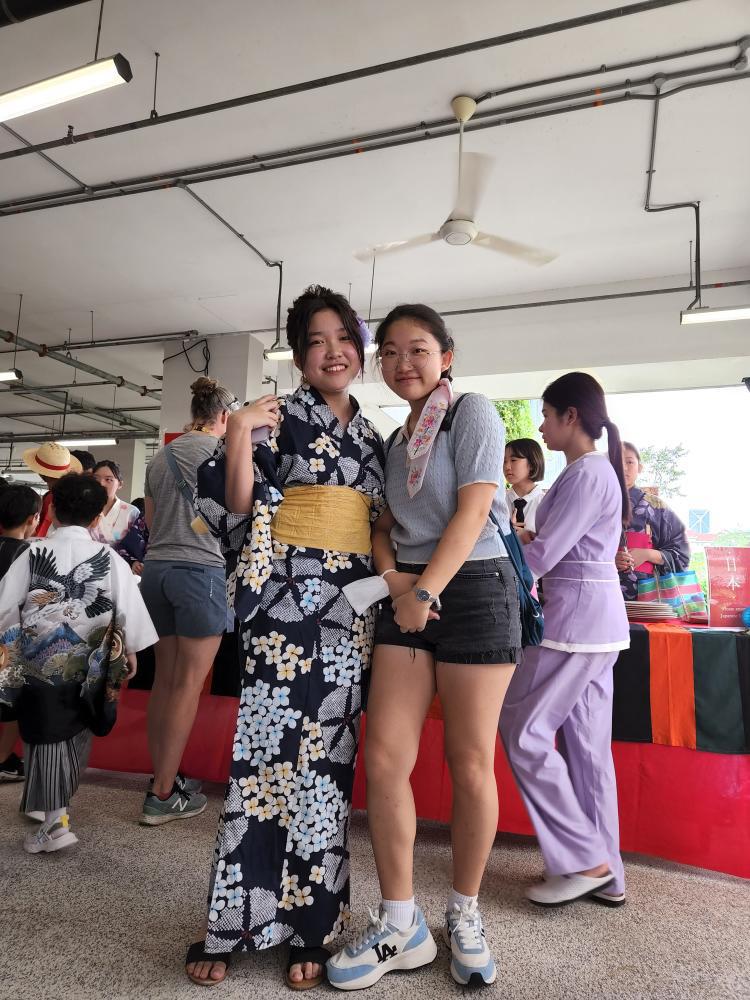 Do tell us more about yourself.
Do tell us more about yourself.
I was born in Japan and stayed there until I was 14 and then moved to Malaysia in August 2020. I entered Malaysia just three days before the lockdown started, and this transition was the most challenging experience because I couldn’t speak English when I came here. However, the diverse environment at ISKL has helped me grow as a person and helped me find parts of myself I didn’t even know I had before.
Do tell us more about your SWIFT project.
For my SWIFT project, which is part of the Pursuits Program, I am researching the roles of a medical interpreter and translator and their significance in this diverse world. I was an English as an Additional Language (EAL) student for two years, and the language barrier I encountered was challenging – I felt nervous about communicating with people in English. Now, as a junior student and having surpassed this personal challenge, I want to help those students who feel the same nervousness about speaking in English.
After discussing with the nurses for Elementary School (ES), Middle School (MS)/High School (HS), and EAL teachers, I created a unique poster with medical terms translated into Japanese, Korean, and Chinese. At first, I only thought of making one in Japanese since my mother tongue is Japanese; however, the teachers suggested I create the poster in Korean and Chinese too. Students can now use the poster to help themselves translate medical terms between English and their mother tongue.
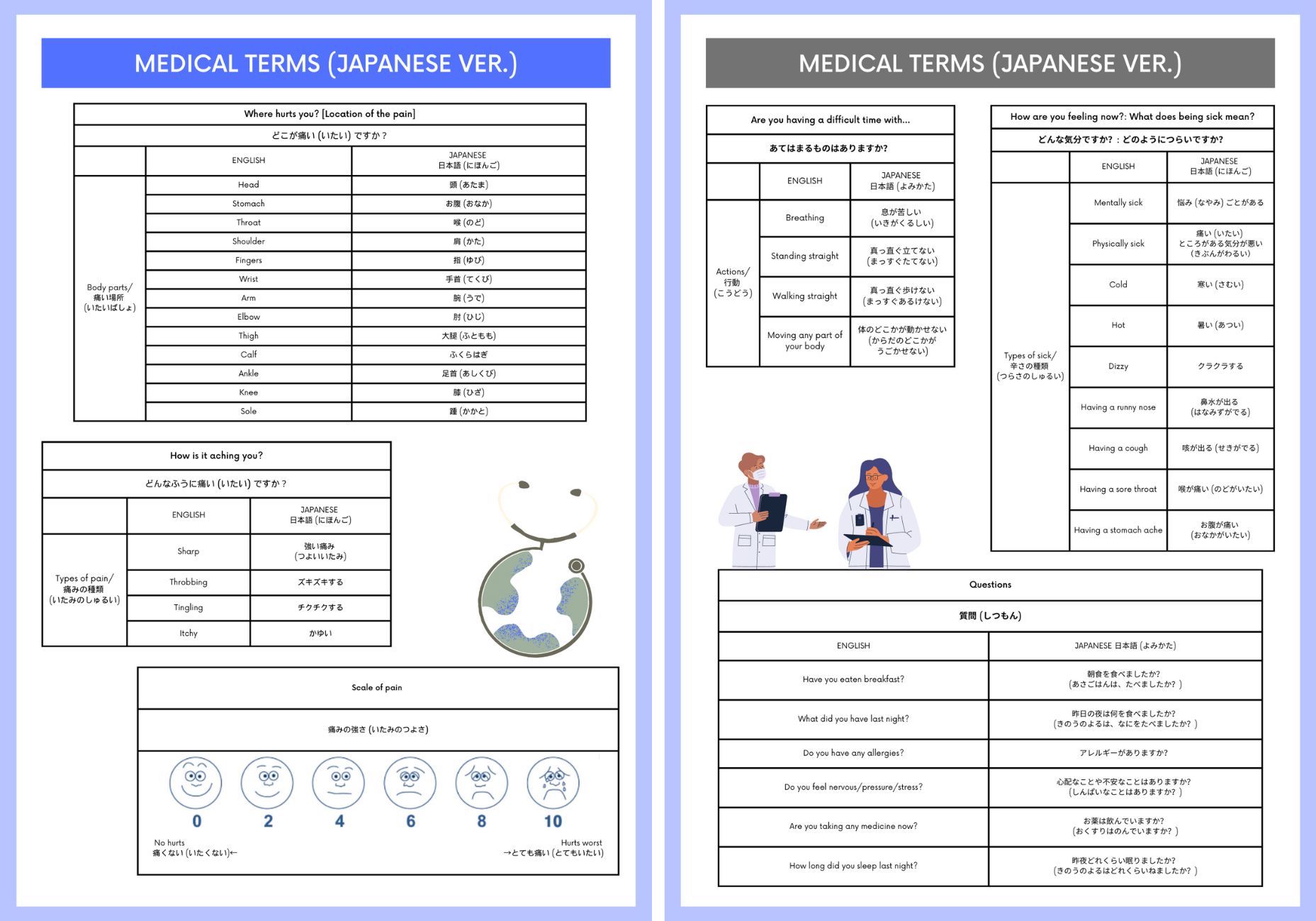
Even though students can’t speak English well or don’t know the correct medical terms to explain their symptoms or understand what the doctor says, they can understand and interpret these by themselves by using these posters. I heard that in Elementary School (ES), some EAL students bring friends who speak both English and their mother tongue to help them to translate in the nurse’s office, which is challenging for both students and nurses. With this poster, I hope EAL students will not hesitate to go to the nurse’s office just because of language difficulties.
Do you participate in any co-curricular activities at ISKL?
I participate in the Key Club, where we teach English to refugee children. It is a thought-provoking and precious time for me to interact with those children, allowing me to learn as a teacher and a leader. From my experience as an English as an Additional Language (EAL) student, I am considerate of their inability to speak English. I try to make every week’s meetings enjoyable and meaningful for them. Their smiles and warm messages always motivate me, and this experience makes me learn more about interpreting skills relative to my SWIFT project.
I also participate in ISKL Medics, a club that teaches about the various medical care available and has seminars inviting specialists from outside the school. As a student aspiring to the medical field and nursing, this is a massive opportunity for me to learn the work of a healthcare worker. The ISKL Medics club is enjoyable, but at the same time, it is meaningful as it inspires me to do something related to the medical field or nursing even more.
Any plans for after you graduate ISKL – what would you like to do?
I am interested in becoming a medic, nurse, medical interpreter, or translator. I want to utilize my experiences and perspectives at ISKL and bring those ideas to Japan, my home country. Since finding my interests here, I would also like to apply my knowledge and contribute to society to make a place where people can find their own identity.
Do you have any thoughts on your career pathway?
I want to be a healthcare worker as I love caring for people and communicating with people in person, or even working as a medical interpreter or nurse. However, I want to challenge myself with more subjects and explore multiple fields!
What are your hopes and dreams for the future?
My goal is to become a bilingual healthcare worker in Japan. When I injured my arms and went to physiotherapy a year ago, a Japanese translator helped to translate medical terms and supported me mentally. This injury directly affected my musical performances, and I was very concerned, but the translator helped me physically and mentally and helped me to overcome the difficulties I faced.
This has led me to want to become a bilingual healthcare worker in Japan and help foreigners to translate Japanese and English in any medical situation. I also hope that all people are provided equal and appropriate medical treatment despite the potential of a language barrier.
I’ve found my identity through caring for people and am interested in medics and nursing, which made me decide to explore the role of a medical interpreter. The job of a medical interpreter and translator is to help the communication between patients and doctors if they speak different languages and need help in interpreting
Who or what inspires you or has influenced you?
The Japanese translator I mentioned earlier is still in contact with me, and our family loves her! Her high communication skills and emotional support were significant catalysts in my aspiration to be a medical interpreter.
Can you tell us more about your other hobbies and interests?
I have played the piano since I was six years old and the clarinet since I was 13. ISKL provides plenty of music opportunities, and I enjoy participating with my friends.
I have also participated in IASAS since Grade 9, and it’s an excellent opportunity to learn more about music. I love playing with people who love music and gaining new performing skills. We can finally travel this year, and I am excited to go to the Jakarta International School (JIS) with my IASAS band members!
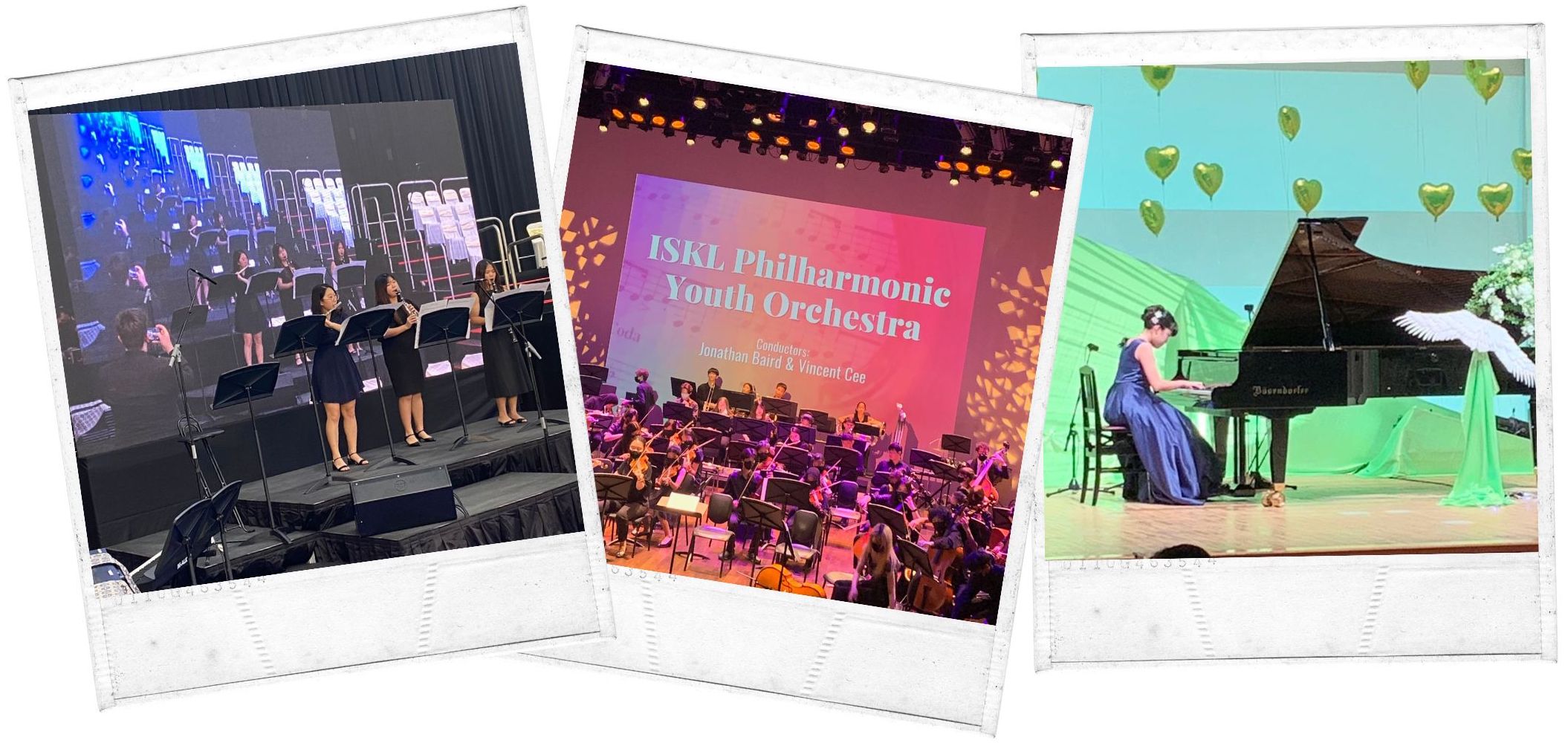
Describe your most memorable moment at ISKL.
The Global Action Program (GAP) has been the most memorable moment at ISKL so far for me. I came to ISKL when the Covid-19 pandemic started, and I couldn’t travel with my classmates, but finally, I could travel for the GAP trip to Jogjakarta. There were many activities I hadn’t experienced before, but all of them were very enjoyable and something I will never forget. It was a very impressive and memorable experience to learn the language directly from the locals and to experience firsthand the food and culture.
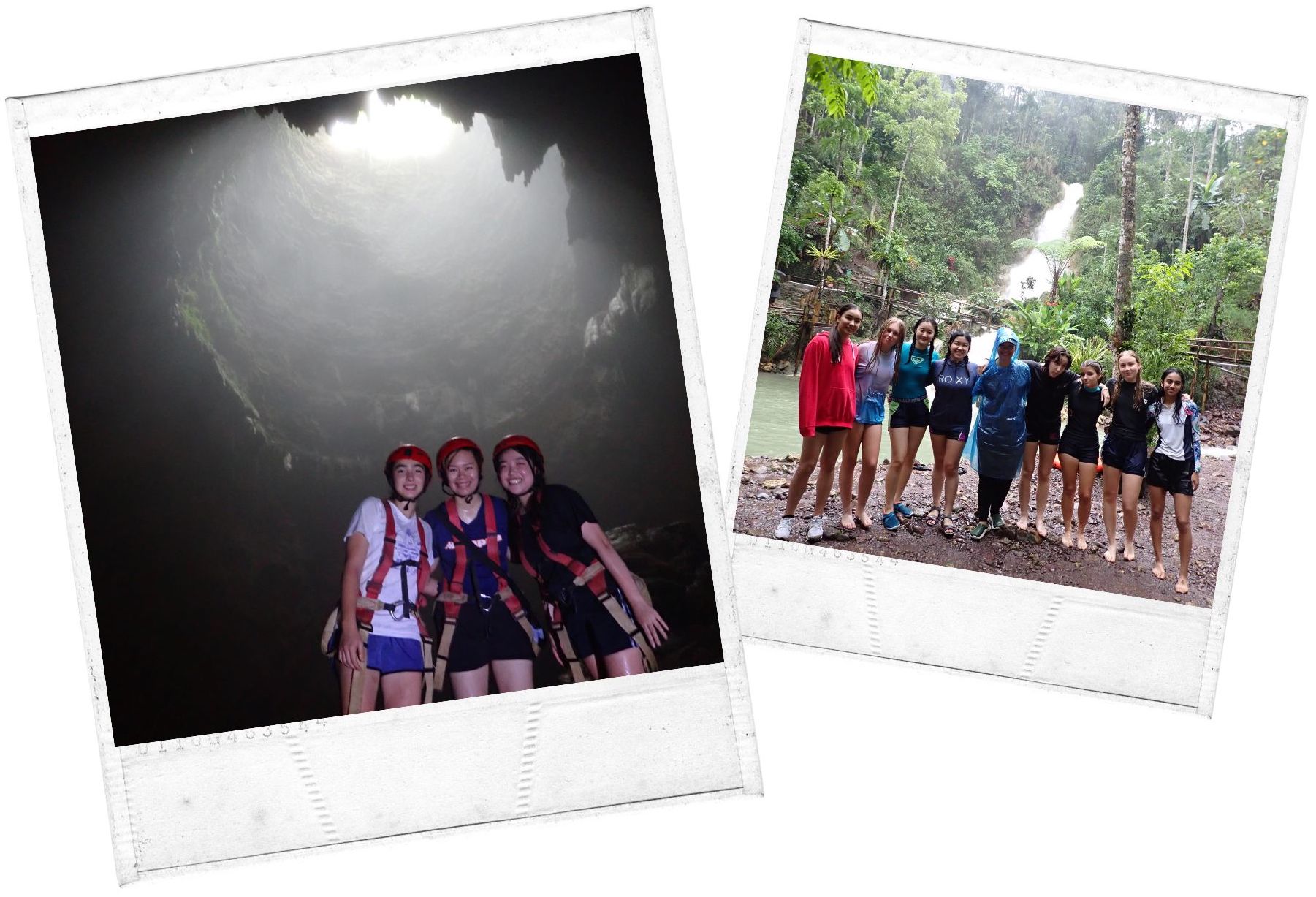
What does “Know yourself, care for all, and create a better world” mean to you?
“Know yourself” means to find your identity. This doesn’t mean intentionally creating your new aspect of yourself but noticing your hidden identity. I love to care for and communicate with people, and I discovered myself in those aspects. I applied my identity to my project, coming up with the idea of how to contribute to society with “myself.”
“Care for all” refers to being considerate to all. Not just to care for all by sitting next to them and creating a poster, but to consider how you can support them with “yourself.” I utilized my own experience to make EAL students comfortable, which I didn’t feel when I was an EAL student. Changing your perspective and finding a way to help people from different backgrounds are essential when caring for people.
“Creating a better world” means providing an equal opportunity for all people by “yourself” and your “considerateness.” I’m creating an equal opportunity for all students to have the appropriate medical treatment in the nurse’s office regardless of their language skills. Finding a way to provide an equal opportunity for all and practicing it in this diverse society will lead to a better world.
Do you know of any student, teacher, parent, or staff who always have an anecdote to tell, love to share some insights into their passions and interest, or simply is a Panther through and through? Nominate them to be featured in our Panthers of ISKL stories by sending in your submissions here.

